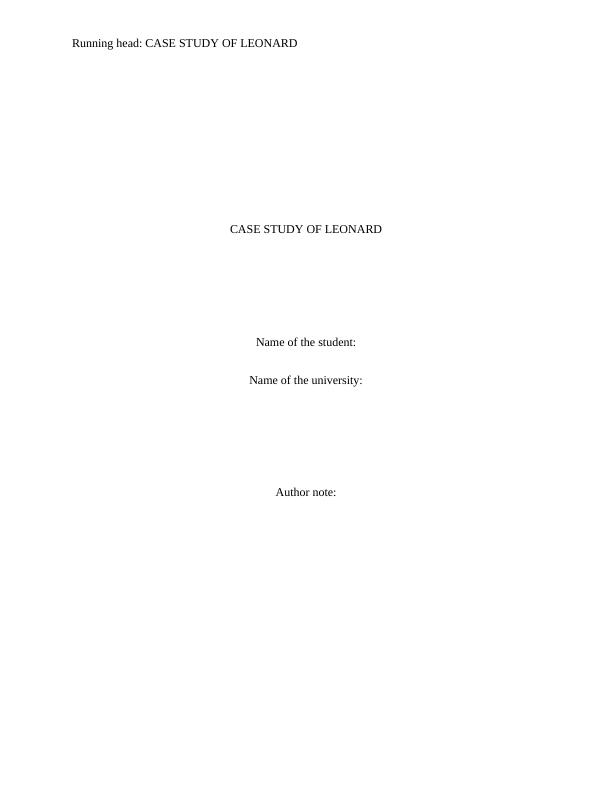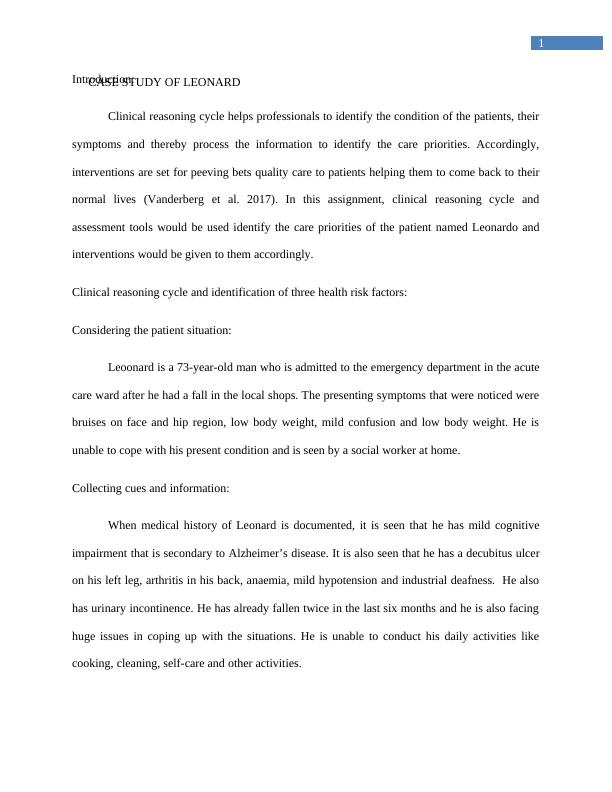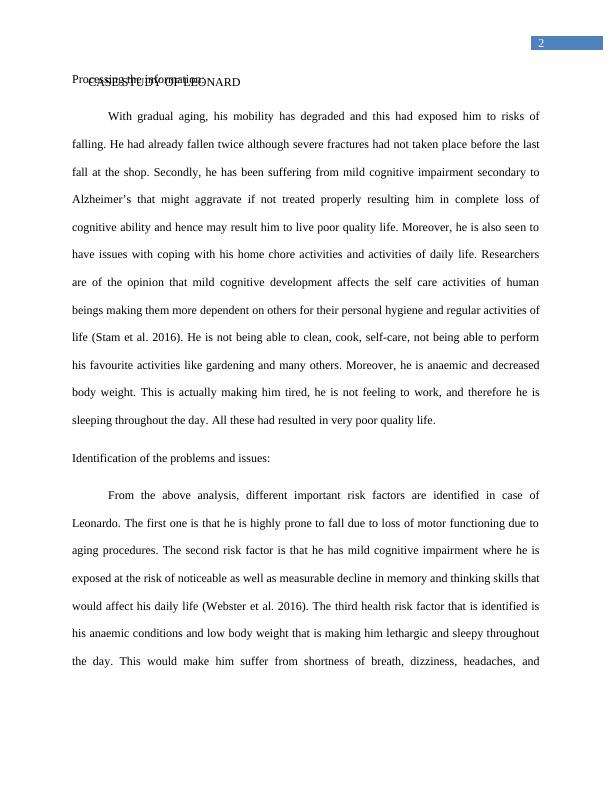Ask a question from expert
Clinical Reasoning Cycle: PDF
10 Pages2643 Words131 Views
Added on 2021-05-27
Clinical Reasoning Cycle: PDF
Added on 2021-05-27
BookmarkShareRelated Documents
End of preview
Want to access all the pages? Upload your documents or become a member.
Nursing Cse Study Assignment
|11
|2660
|50
Nursing Assignment: Risk Factors and Assessment Tools
|5
|1203
|52
Quality Use of Medicines: A Case Study
|9
|2090
|160
The Impact of Living With Parkinson’s Disease
|8
|2240
|12
Early Onset Alzheimer's: Symptoms, Diagnosis, and Treatment
|9
|3895
|326
NRSG259 Promoting Health in Extended Care Assignment
|11
|2761
|249


